Paul Bernard
出生 : 1898-12-21, Villeneuve-sur-Lot - Lot-et-Garonne - France
死亡 : 1958-05-04

Martineau
In order to please Martineau, a wealthy industrialist, cynical Gabory accepts to organize a rigged beauty contest whose winner will be Françoise, Martineau's young mistress. However, there are other comely contestants among whom Christiane, the daughter of a general, Jackie, an unemployed actress, Colette, the daughter of a distiller and Marie, a secretary engaged to serious-minded construction foreman Robert. So, will things turn out exactly the way Martineau and Gabory want them...?
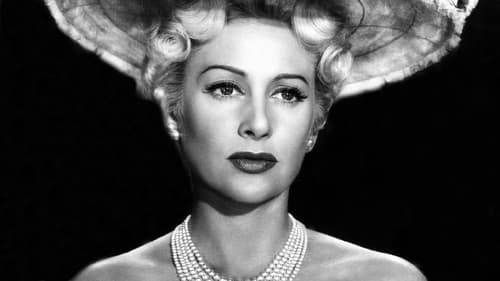
De Boimussy
France, July 1782. During her birthday, the beautiful young Marchioness Caroline meets the attractive soldier Gaston. It's love at first sight but Gaston does not wish to make a commitment because a military career waits for him. Caroline marries then a politician but the French Revolution bursts and Caroline has to run away to escape the guillotine. By running away she meets Gaston again who decides to help her.

Herbert Aboody
In Shangai, the "Green Dragon" threatens to kill Herbert Aboody, a rich exporter, unless he pays him 50,000 dollars. One of Aboody's secretaries calls inspector Wens for help. An amazing fact occurs, Wens kills Aboody and then disappears. What is the key to this mystery?

M. Dumonteix
Roberto, a 10-year-old boy, is drawn to music. An old organist discovers his gifts, and begins his musical education which will lead him to the head of an orchestra.

A man, after a fight, believes he has killed his cousin, and hides the body. The dead man had only passed out, but when he regained consciousness, he became amnesiac. When she sees him again, the woman who loved him takes him for a ghost.

Daniel Sorbier
A plane flying to Dakar is caught in a storm and has to land in the desert. Deprived of a radio, he is unable to give his position and the water reserves are limited to two days. Each, among the military crew and the civilian passengers, experiences the ordeal according to his character.
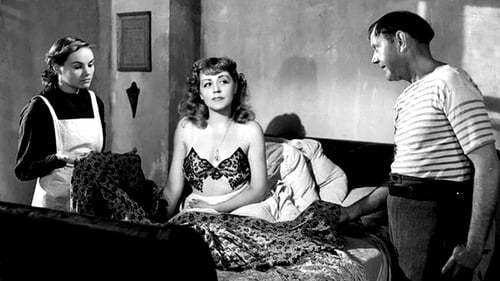
Julien de Keriadec aka 'Pattes Blanches'
An eccentric man endangers himself when he makes advances toward the girlfriend of a saloon keeper.

Bob
Shortly before the War, Jan Lazlo, a Hungarian musician who has emigrated to France, falls for a young woman. Alas, the lady forsakes him and the poor man tries to overcome his grief by writing "Gloomy Sunday", a song so desperate that it can drive its listeners to suicide. Max, a music publisher, likes the song and decides to launch it by all means, foul or fair. Bob, his accomplice, manages to talk his mistress Michèle into committing a fake suicide. She obeys him and the scheme is a success as a result. On this occasion, Jan gets to know Michèle and the two young people fall in love. Happiness seems to be in store for Jan again but this is without counting with Bob. Jealous of Jan, the naughty fellow indeed tells him that Michèle's attempted suicide was nothing but an advertising pretense.

Serge Ullrich
A trio of criminals gradually become entangled in theft and crime. Serge is arrested, his mistress, Hélène, and his accomplice, Michel, both become lovers, try to exonerate him and use false fingerprints first, then after Serge's conviction, gloves covered with the same fingerprints of the prisoner.

Charles Sigouare
On the borders of the desert, Péhu, a rather blunt creature on the verge of death, confesses to Charles Sigouane that some time before he stole and killed for the sake of a woman named Marie. Péhu recovers against all odds and returns to France with a view to finding Marie and to retrieve a loot he has hidden somewhere.
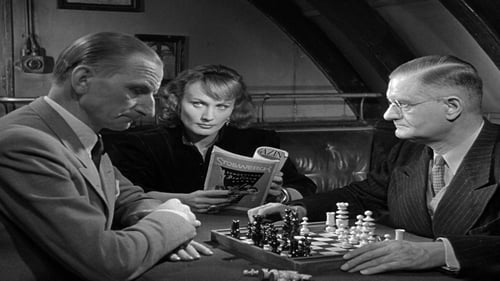
Couturier
A group of Nazis and sympathizers board a submarine bound for South America in the hopes of finding shelter.
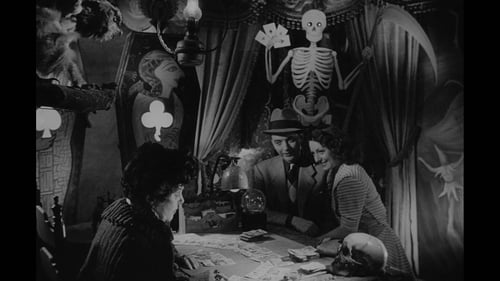
Alfred Chartier
Proud, eccentric, and antisocial, Monsieur Hire has always kept to himself. But after a woman turns up dead in the Paris suburb where he lives, he feels drawn to a pretty young newcomer to town and discovers that his neighbors are only too ready to suspect the worst of him.

Alfred, le véritable assassin
Proud, eccentric, and antisocial, Monsieur Hire has always kept to himself. But after a woman turns up dead in the Paris suburb where he lives, he feels drawn to a pretty young newcomer to town and discovers that his neighbors are only too ready to suspect the worst of him.

Paul Luversan
Roger Laroque is now a rich man. He returns to France under the name of William Farnell. There, he discovers that on the one hand his wife has died of a broken heart and on the other that his daughter Suzanne is in love with Raymond de Noirville, the son of his former mistress. With the help of a few friends, Roger coldly prepares his revenge.

Le docteur Maurice Tiller
Commander Gerard and his band of guerrillas have found the ideal hideout: a nursing home in the Alps where, along with the mentally ill, are also hiding a Jewish girl and a Swiss doctor who might be a spy for the Germans ...

Roger Laroque, an honest industrialist, is the victim of a criminal machination by Julia de Noirville, his possessive and jealous mistress allied to the perfidious Paul Luversan, meant to make Roger take responsibility for the crime he himself committed. Laroque is sent to prison, from where he escapes by sea. When he is reported missing, it looks like he drowned. But he reappears with revenge as his objective. He also wants his daughter Suzanne back. For his wife, it's too late, she died of grief.

Mr. Henri
A village lost in the mountains where Catherine called L'Airelle's love affair takes place with a young doctor. Catherine's father is the local bonesetter whose wife threw herself into a glacier out of despair of love and whose body reappears intact twenty years later. In addition, the pharmacist of the country is accused of having seduced a young girl who is avenged by her mother. The bonesetter also dies, the village fortunately continues to live.

Jean
R・ブレッソンの第二作で、後の研ぎ澄まされた話法から比べれば流麗と呼んでいいスタイルながら、少ない登場人物の心理をえぐる描写力は、この頃より既に具わっていた。原作は哲学者ディドロの小説『運命論者ジャック』だが、その監督自身による脚色に、詩人コクトーが古いタイプの美しい台詞をつけ、日常性から快く乖離した、ロマンティックな彼特有の作品世界に仕立てている。観劇の帰りのタクシーの中で男友達はしきりに、エレーヌ(カザレス)の恋人ジャンの冷淡さをあげつらい、自分を売り込むが、彼女は“ジャンを愛している”と決然と言い放ち、車を降りた。しかし、屋敷で待っていた当のジャンに彼女は、一緒にいても胸がときめかない、と言う。するとジャンは、自分も同じ気持ちでいた、と予想外の返事をし、人に悟られぬようしばらく別れて暮らしてみて、なお惹かれ合う気持ちがあれば、その時こそ結婚しよう--と告げて、彼女の許を去るのだった。裏切られた心境のエレーヌは彼への復讐に燃える。かつてバレリーナ時分にパトロンをしていたアニエスを場末の小屋に見つけた彼女は、その後を追い、マネージャー役のその母親に計略に乗ってくれれば、再び経済的な面倒を見ようと言う。彼らがかつてどんな結びつきにあり、会わない間に何が起きたかは詳らかにされないが、娼婦の生活に墜ちた彼女は、次々に住み家も変えている状態だった。エレーヌはそんな彼女をジャンに引き合わせる。案の定、彼は彼女を娼婦とは気づかず夢中になる。からくりを知らないアニエスも、苦悩しながらも彼を受け入れ、遂には結婚となるのだが、果たして、エレーヌの思惑通りには運ばず、アニエスの過去も二人の愛情の妨げとはならないのだった。
<allcinema>
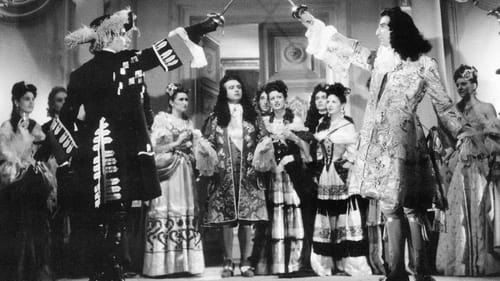
Philippe de Gonzague
The knight Henri de Lagardère wants to avenge the death of his friend, the duke Philippe de Nevers assassinated by the prince de Gonzague, a few years before.
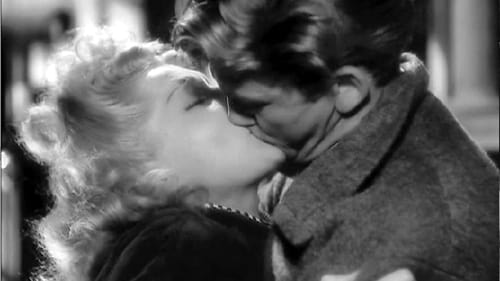
Pierre Gohelle
Gohelle, escaped from prison, seeks to flee occupied France for Argentina. The captain of a cargo ship is willing to smuggle him out out France for a price but Gohelle has no money. His mistress, Marie-Angel tries to charm the money out of wealthy Alain Ginestier who seems the ideal pigeon but Marie-Angel falls in love with Ginestier.
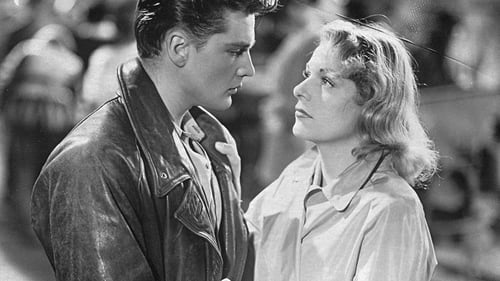
Patrice
A shimmering glass hotel at the top of a remote Provençal mountain provides the setting for a tragicomic tapestry about an obsessive love pentangle, whose principals range from an artist to a hotel manager to a dam worker.

Claude de Servière
Ginette, daughter of a foreman of an automobile factory, and Claude, son of the director of this company, love each other, but the father of the young man refuses the marriage.

Désiré Coche
A young journalist hungry for scoop lets himself be suspected of a crime to write a report.

Two brothers-in-law hate each other but, for business interests, they want their respective son and daughter to marry. The young fiancées are not in agreement, as the boy has a happy relationship with a woman, and the girl is in an isolation mood. A crime happens, and the relations amongst this sad family become even worse.
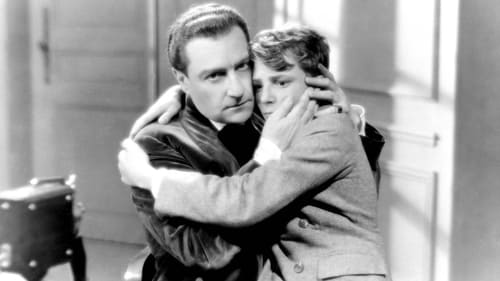
Maurice Bellanger, son fils (adulte)
After being left for another man by his wife, Charles Bellanger raises his only son to fear and suspect women. Years later, such an education is bearing fruit.

André
Narcisse is a doorman for a jeweler but dreams of becoming a private detective. The Criminas agency hires him and he comes to the aid of his former boss's nephew, accused of stealing jewelry. He first passes for the accomplice of the young man but soon discovers the culprit.

A cabaret singer in Barcelona sacrifices her feelings for an exiled young Frenchman who had been falsely accused of a crime, when the sister of the real culprit seeks the exile out.

A femme fatale falls in love with a Venetian count, implacable enemy of Selim, who pursues his sister with his diligence. This one makes stop and condemn to death the count who made an attempt on his life. Then he offers the woman her father's salvation in exchange for her favors. A snake kills him, the count is shot and the woman finally takes the veil.
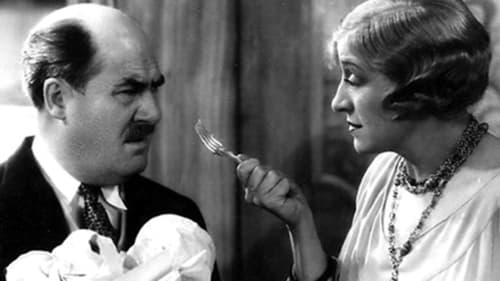
Pierre
Mr. and Mrs. Noblet run a boarding house on the French Riviera. One day, they are led by circumstances to welcome a little boy Pierre, whose father is in jail, into their home. Which makes Louise Noblet all the happier as she can't have children herself. But, after a while, Pierre's father is released from prison and reclaims his son... Time passes and Pierre, now a young adult, lives in Paris more or less on the wrong side of the law. He has a mistress, Nelly, who does not say no to other men's money... Louise, who still loves Pierre as her own son, wants only one thing - to help him get by.

Jacques
A young aristocrat whose ruined father decided to marry her spends one last night as a bachelor at the boarding school ball. But there, cheerful students strip her of her clothes and she finds refuge precisely with her future husband whom she did not know. Of course, the marriage that was so repugnant to them fills them with joy.

Based on a play by Pierre Wolff, about a wronged husband’s revenge on his wife and her lover, La belle de nuit is a major find, a work of uninhibited stylistic imagination that ranges from Sirkian stylization (an elaborate play of mirrors and doubles) to brutal realism (a tour of the bordellos of Marseille suggests the contemporary photographs of Brassaï).






























